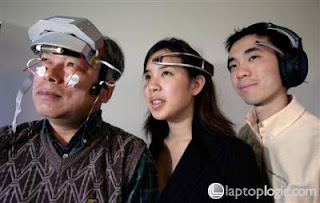Religion in Ancient Athens
What exactly is the reason that we have a civilization? What brings people together to create one? Civilization is made when a group of people need to grow together and progress as one. In order to do that they need something to keep them together, a unifying substance so they feel as though they belong. Government can help to do this, but I find that Religion provides a better adhesive, for no matter what race you are, or what language you speak, people generally feel safer around people that are like them and believe in the same principles. While some believe that religion may be a bunch of stories that don’t make sense, to another person it can help to spark the imagination, it can be a source of hope, inspiration, courage, and sanctuary. In the case of Athenian religion, it inspired the artists so much that throughout the city statues of gods and goddesses were erected throughout the city and Athens became one of the most beautiful ancient cities.
Athens was a huge part of ancient Greece; it was birthplace and home to Socrates, the origin of democracy, and home of the Parthenon. Athens was a very unique society in the fact that it started democracy, whereas almost everything else had been a monarchy before then, it also flourished as a home to sculptors and philosophers alike. They were a society of knowledge, and they excelled as a sophisticated society. They were not war-like as Sparta, but they spent their time with other things such as building the Parthenon, or knowing that they know nothing (Socrates). Everywhere that you turn there would be a beautiful statue or altar with people surrounding it praising the gods. That’s another part of Athens, its religion.
Athens had a very strong unity of religion. Everyone was raised to believe the same thing, and as a result almost everyone was doing the same rituals. It was a very tight-knit community; though there numbers were broad they felt safer simply because they knew the others from various ceremonies. In the Athenian religion there are many gods, almost one for everything. So people could feel close to one or a few of the gods that were most like them which made the people feel safer, so a sailor would pray to Poseidon, god of the seas, often in hopes of safe journeys. Also the gods were not way above the mortals in terms of emotion, which made it easier to connect to the gods and so the religion burgeoned. While Athens had a very strong religion that lasted centuries, and is still preserved but not practiced, there were some major flaws in their mythology.
One area that their religion did not do so well was having one major god that was all powerful that men and warriors could try to emulate. All of the Greek gods were subject to envy, lust, and fate. Zeus was constantly philandering and not being faithful to poor Hera. Persephone was abducted from her mother and forced to stay with Hades because she ate the seeds of a fruit. Dionysus died. While they had power, they were not very god-like. Their weakness makes them approachable but also makes them hard to deal with, they were practically mortal. Zeus, while “ruler of the gods”, was not all powerful or all knowing, he could be deceived (like man), opposed (like man), and was subject to the whim of Moira (an aspect of fate [like man]) . How much help or salvation can gods who can err this much possibly offer? Also very little of how the gods were to be worshipped was written down so the stories needed to be passed down verbally and the celebrations must be done as they were remembered. There is also a very distinct lack of morality in almost all of the stories of the gods. There is adultery, jealous punishment, wraths, tortures, and complete confusion in the stories; they seem like phantasmagorias, filled with dues ex machinas. To put it simply, the gods were incomplete. So there were both Strengths and weaknesses to the Athenian religion, but how does this compare with some of the other ancient religions like the Egyptians?
Athenian religion is similar to the Egyptian religion in some ways, but was also quite different in other ways. Religion was a huge factor in both civilizations, it was very important to the people. The Egyptians worshipped gods that were in the form of a statue, while the Athenians worshipped “actual” gods . The Athenians believed that death was caused by human error and believed in an underworld, The Egyptians believed that god picked that person who died as a sacrifice. While both civilizations were polytheistic, there was a period during the reign of Akhenaton when the Egyptians were monotheistic . The Egyptians worshipped some gods throughout the country, while others were worshipped in smaller cities, unlike Athens where all gods were worshipped, but they would focus on a certain god depending on what was coming up or where you lived. Most of the Egyptian gods were at least part animal which resulted in the Egyptians having holy animals, while Athenian gods were completely human shaped. Whether or not the Athenians were more “advanced” in terms of religion than the Egyptians, I’m not sure how you could measure that. The Greeks had more mythology and explanation for things, but they also had lots of problems with their gods being godly. The Egyptians had holy animals, which I suppose is a little primitive for their time, but it also made them unique. The Egyptians also held to tradition because of religion, which is both positive and negative. There weren’t many breakthroughs in technology because of that, but what they did; they did well because they had lots of practice. More advanced or farther behind, religion was a good thing for both societies I believe.
Religion helped the Athenians in the long run; it gave people something to do, or a sense of purpose. It is partially because of the religion that Athens became one of the most successful cities in Greece. It was even named after the goddess Athena, in the hopes that she would watch over the city to help it prosper. People felt safer in Athens because they imagined Athena constantly watching over it, taking care of any problems that would come up. Although this did not help them in the end, they still prospered and had a very successful society.
I believe that religion was part of their success as a society. While theirs was not the most complete religion, I believe that their religion had a purpose as all religions do. It was to unify them, to help the citizens through their daily life. To let them feel as though there was someone on whom they could rely, who they could trust to protect them and help them through the times of need. So a weak man could find strength, and a frightened one could find safety. This sense could lead to foolishness, or it could give someone the hope they need to continue until they complete their journey.


